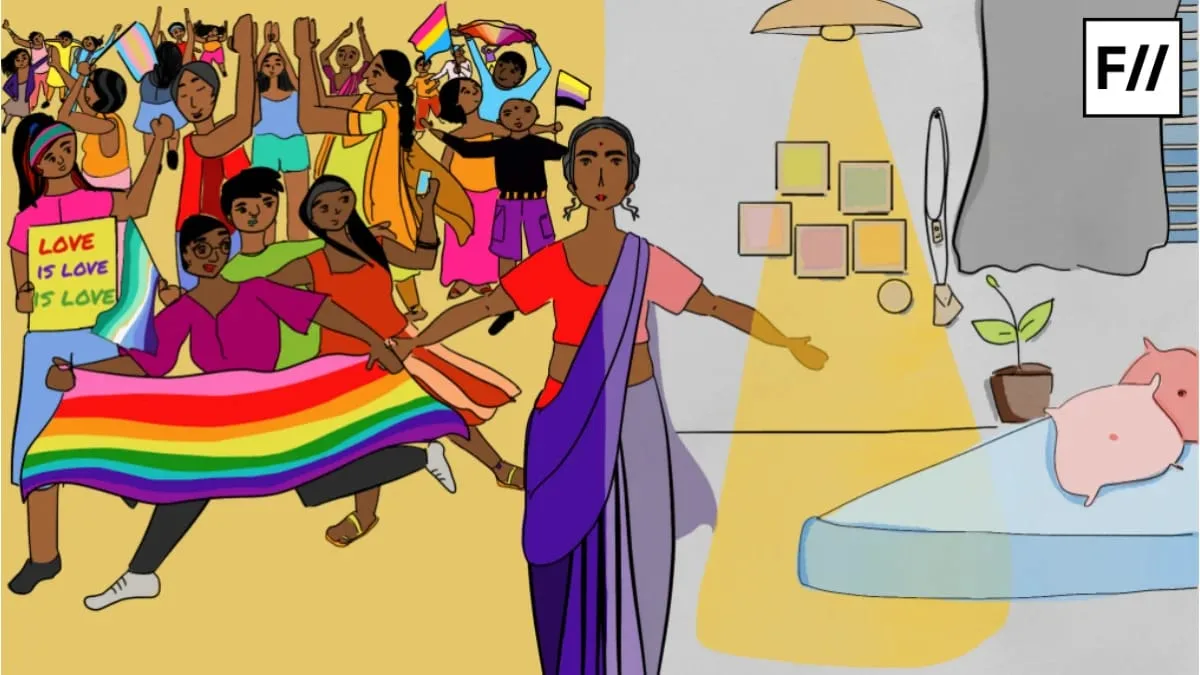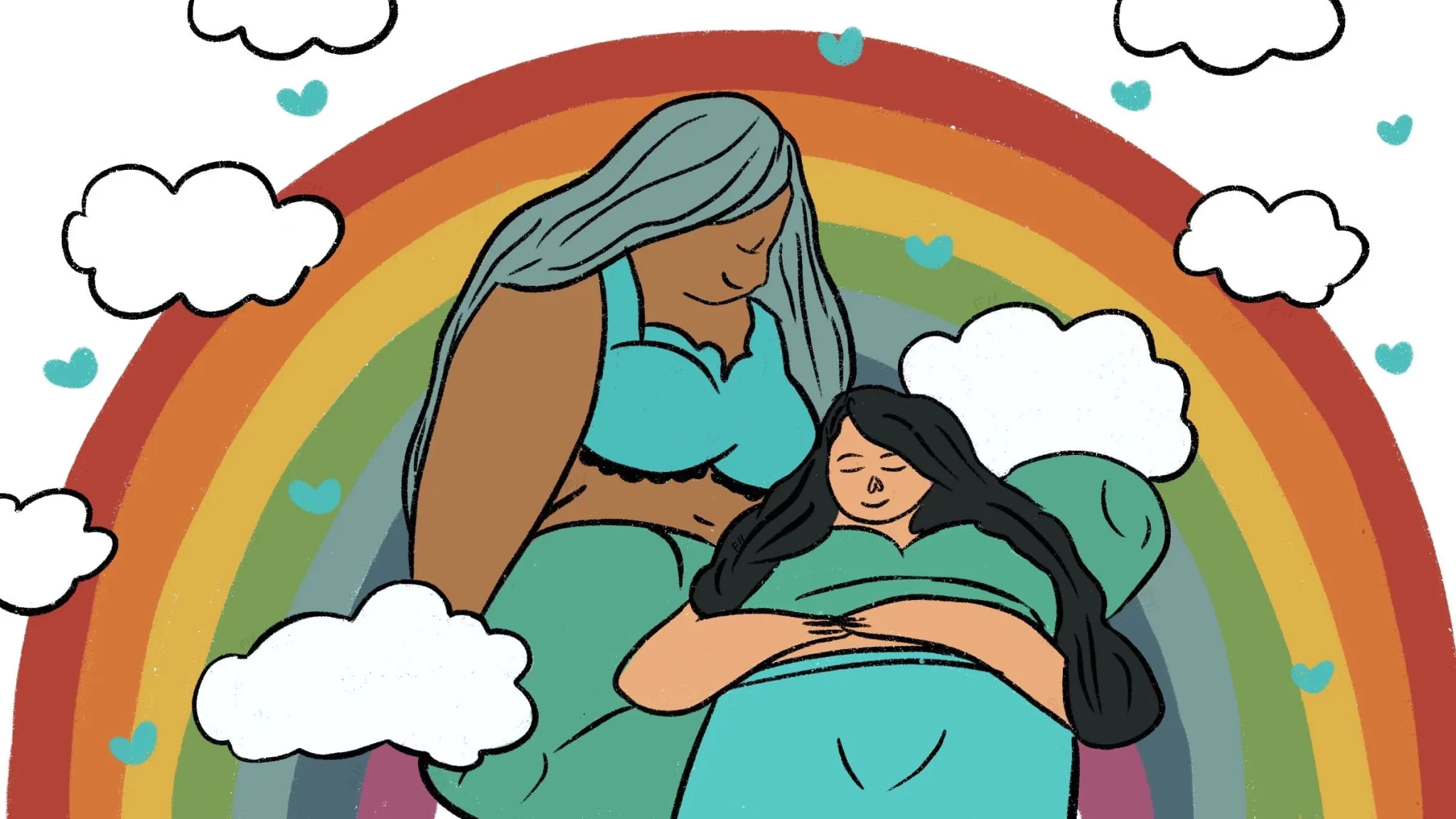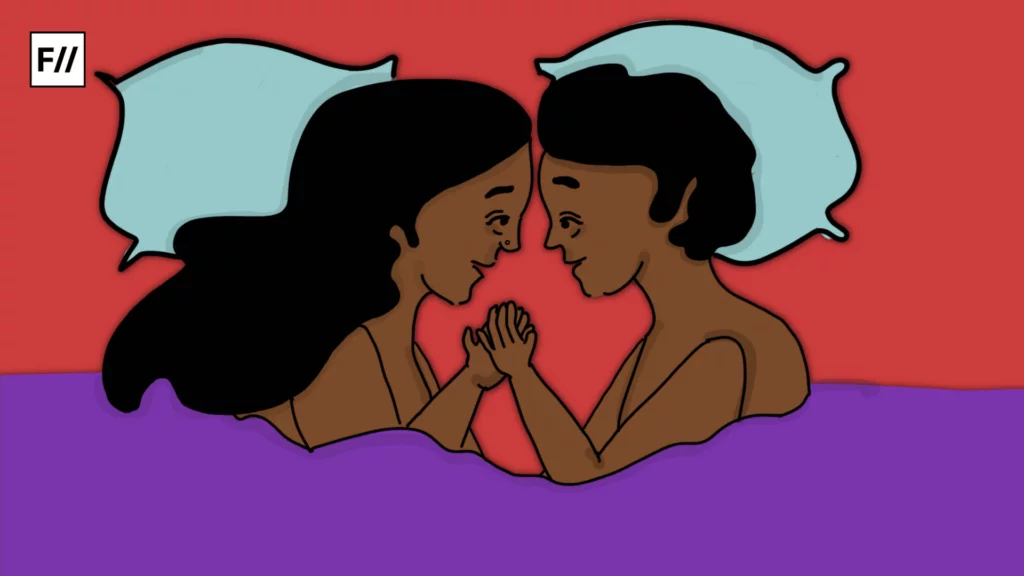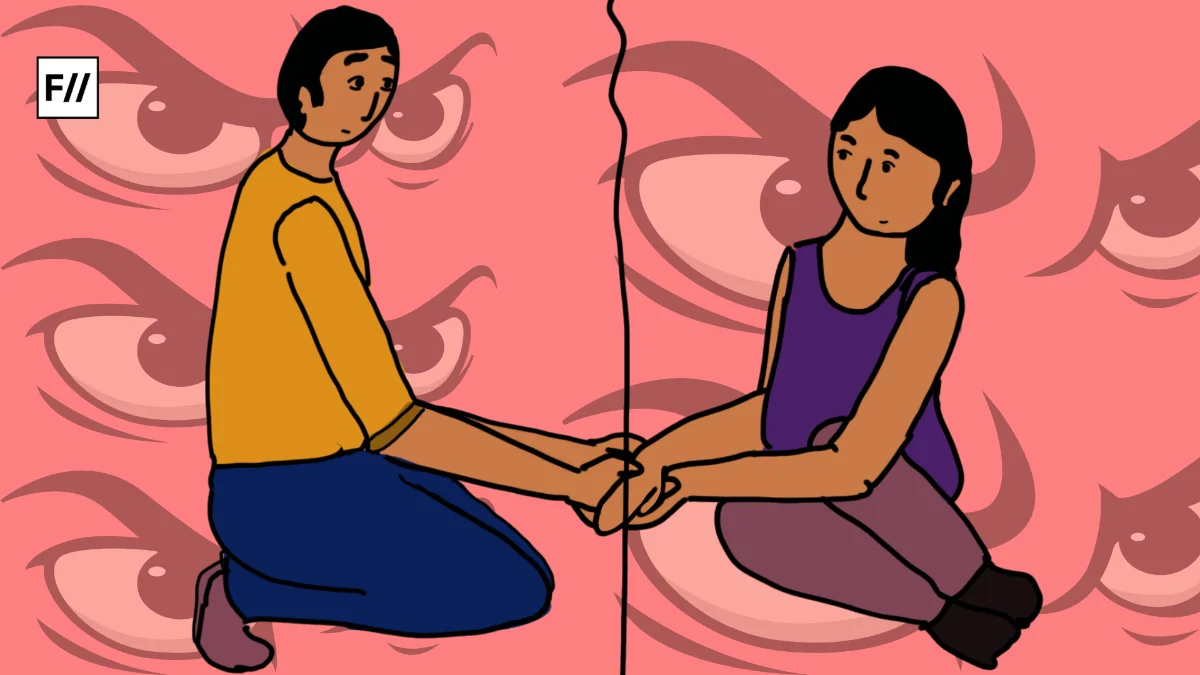With the Madras High Court’s recognition of ‘chosen families,’ which seemed to be nothing short of ‘virtue-signalling,’ the non-recognition of same-sex partners’ consent in a medical crisis reifies the same. Numerous couples who have gotten married elsewhere fail to access marital benefits in India, since same-sex unions have not been legalised. Arshiya Takkar, who has been living in India, having married her partner in New Zealand in 2023, has filed the petition and is being represented by senior advocate Saurabh Kirpal and Shyel Trehan. The bench was presided over by Justice Sachin Datta, who has given the centre four weeks to send a reply.
Defining the clause and its limitations
The petition not only challenges the kinship hierarchy of lineal and affinal relations but also negates the validity of ‘chosen families,’ quintessential to a queer couple. Queer relationships cannot be governed by the heterosexual framework, which seeks to constantly exclude them. Since no measures have been taken by the Centre, following the Supreme Court’s directive regarding the creation of legislation for queer individuals and their legal rights, which was subsequent to the Marriage Equality hearing, the petition was filed in order to protect queer people’s rights in the realm of medical decision-making.

The petition comes in response to the 2002 Code of Medical Ethics Regulations, whose clause 7.16 states that ‘Before performing an operation, the physician should obtain in writing the consent from the husband or wife, parent or guardian in the case of a minor, or the patient himself, as the case may be. In an operation that may result in sterility, the consent of both husband and wife is needed’. Since the regulations have been codified keeping the heterosexual family structure in mind, they need to be revisited to make them neutral and inclusive. In effect, for clause 7.16 to be truly inclusive, a recalibration is essential.
Queer relationships cannot be governed by the heterosexual framework, which seeks to constantly exclude them. Preventing queer couples and individuals from making their own decisions regarding their own bodies reflects a social insecurity that is trying to resist the emergence of queer families, since it might threaten the basic unit of a society that has benefited from women’s unpaid labour and exploitation.
Based on Monika Arora’s (the Centre’s counsel) argument that the clause isn’t discriminatory since it “equally” applies to unmarried heterosexual couples and queer couples, a rehaul is necessary to not only include queer couples but also heterosexual couples out of wedlock. Marriage, in India, is a huge social affair, and given the heterogeneous demographics of the state, many couples choose not to marry, “socially” or “legally.” Honour killings over religion and caste can act as an impediment to marriage, or one can simply “choose” not to “marry.” This choice, therefore, jeopardises the lives of unmarried heterosexual couples, who shall be debarred from deciding on behalf of their partner. Thus, the parameter that individuals need to be “identified” as the “husband” or “wife” needs to be done away with.
Medical decisions should not have to depend on a person’s marital status. It is time the government got rid of this requirement. As per the clause formulated by the National Medical Commission, medical interventions leading to ‘sterility’ should have to be consented to by both husband and wife. In essence, this puts the ‘decision-making’ power of a married woman in the hands of her husband. On the other hand, the guidelines by the Ministry of Health and Family Welfare, Government of India, state that ‘sterilisation’ procedures do not require spousal consent. The two seem to be at loggerheads with each other. The contradiction between these regulations leaves healthcare providers in a difficult position.
Embracing changes and rejecting the binary
Given that women experience a lot of anxieties surrounding reproductive health, doctors and husbands often force them to undergo hysterectomies, even when they aren’t essential. As stated by a fellow doctor, ‘Consent lo, nahi lo, ek hi baat hai, patient toh haan hi bolegi. Husband ko samjhao bas. (Whether you take consent or not from the patient, it’s the same thing. She will agree to everything. Just explain it to her husband.)’ Misogyny and women’s status as ‘second-class’ citizens can be witnessed in healthcare settings.

Due to women’s ‘lesser status’ in almost all societies, their autonomy is often ‘manufactured.’ Influenced by decisions and coercion by the natal family and the in-laws, the penultimate decision that the woman shall end up making might not be reflective of her own ‘choice.’ What might look like a ‘joint decision’ on paper would actually reflect the man’s dominance over the woman. Research undertaken in Nigeria has shown that only 6% of women make their healthcare decisions by themselves.
Due to women’s ‘lesser status’ in almost all societies, their autonomy is often ‘manufactured.’ Influenced by decisions and coercion by the natal family and the in-laws, the penultimate decision that the woman shall end up making might not be reflective of her own ‘choice.’
The current regulations are tone-deaf and cannot relay the troubles faced by queer individuals in healthcare settings. Equating heteronormative familial relations to queer relations cannot possibly paint a clear image of lived experiences. Natal-family violence often affects a queer person’s selfhood. In order to escape, individuals look for alternatives. In a situation such as this, the person might not want their lineal kin to show up. The natal family’s presence has the ability to bring forth a barrage of shaming and insults, notwithstanding the already troubled individuals. Calling the parents for their written consent might also give up the person’s location, and the parents can take the opportunity to coax the individual back home. Along with medical trauma, the person may be bogged down with emotional bruises. Who would then accept the responsibility of causing emotional hurt?
Although rare, parents themselves sever ties with their children over their identity. Estrangement can bring upon loneliness and despair. A parent who severed ties themselves might not want to show up for their children’s treatment; following which, shall the treatment stay on hold? As pertinently questioned by Justice Sachin Datta, what would happen to those individuals who are unmarried, heterosexual, and living by themselves?
Ensuring equal healthcare access to queer people
Preventing queer couples and individuals from making their own decisions regarding their own bodies reflects a social insecurity that is trying to resist the emergence of queer families, since it might threaten the basic unit of a society that has benefited from women’s unpaid labour and exploitation. Queer relationships, while not wholly, tend to perpetuate an egalitarian structure in their relationships with each other, since traditional gender roles go for a toss. Hence, a truly autonomous decision is certainly possible.

A comparative study on informed consent conducted in some European countries reveals a model that, if replicated and implemented, will help maintain an autonomous decision-making procedure. The research has revealed that, in all the countries researched, the patient or the person being cared for, unless a minor, has to be the one providing consent, and space for dissidence is always explicitly mentioned. The majority of the countries reportedly have the provision of referring to healthcare providers, taking a second opinion, or relying on guardians in case of the adult not being able to consent in their full capacity.
The interventions that are considered urgent (such as contagiousness) can bypass the stage of informed consent. However, these countries have stressed the EPA and LPA (read: enduring power of attorney and lasting power of attorney) in order to make decisions regarding the interventions when the patient is unable to do so. This provision is not only inclusive of all but also makes sure to exclude none. Avoiding the pitfalls of a homophobic family, such an implementation in India could do wonders.
Navigating the murky waters of public healthcare and sifting through the expensive private hospitals, the lives of queer individuals are already rife with inconveniences. Additionally, being denied the right to make decisions for partners or being unable to consent for their well-being pushes them towards the brink of precarity. While the Centre may come up with unsustainable excuses to reject its queer citizenry the rights to their own bodies, it is also necessary that we keep them on their toes and hold them accountable until we reach the epitome of queer liberation.





